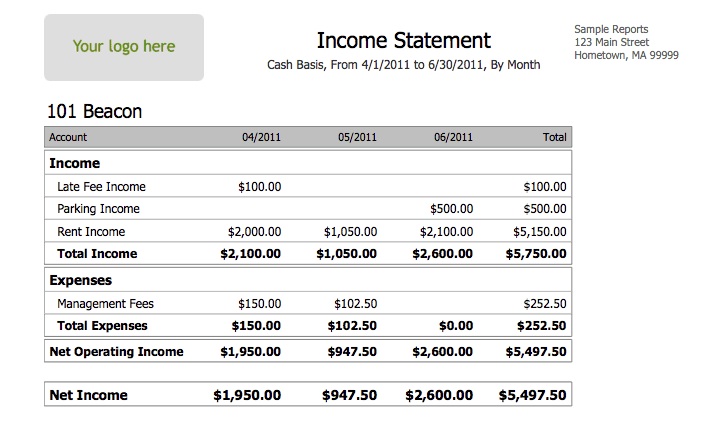Step-by-Step Guide to Creating an Income Statement for Rental Property
Step-by-Step Guide to Creating an Income Statement for Rental Property
Blog Article
Understanding the economic health of one's rental house is vital for making knowledgeable decisions. A hire house income statement is an essential instrument that enables landlords to gauge their rental property income statement.That information describes the main element aspects of a rental home revenue record and how exactly to utilize it effectively.
What is a Rental House Income Record?
A hire property revenue statement offers reveal break down of money and costs linked to a hire property. It will help landlords realize whether their property is generating a profit or incurring a loss. By checking all revenue streams and expenses, landlords can recognize parts for optimization and guarantee long-term economic stability.
Critical The different parts of a Hire House Income Statement
Rental Revenue
This part involves all revenue generated from the property. It's very important to take into account:
•Base Rent: Lease compensated by tenants each month.
•Additional Money: Revenue from parking costs, washing models, pet charges, and other amenities.
Functioning Costs
Functioning costs are the expense related to operating and sustaining the property. Essential cost classes contain:
•House Fees: Payments towards local tax authorities.
•Insurance: Landlord insurance premiums for home protection.
•Preservation and Fixes: Fees for regular preservation and sudden repairs.
•Tools: If covered by the landlord, contain water, gasoline, electricity, or internet services.
•Administration Charges: If employing a property manager, include their costs here.
Net Operating Revenue (NOI)
The Web Functioning Revenue (NOI) is determined by subtracting running expenses from hire income. It gives a snapshot of the property's profitability before sales for extra expenditures like mortgage payments.
Other Expenses
Including non-operating prices such as:
•Mortgage Obligations: Primary and interest on loans.
•Depreciation (if relevant): A non-cash price ideal for tax reporting.
•Legal or Qualified Expenses connected with the property.
Taxable Revenue
Ultimately, the money record reflects the property's taxable money, which considers depreciation and other deductible expenses. This is the figure landlords record for tax purposes.

Why Make use of a Rental Home Revenue Statement?
An obvious money statement allows landlords to:
•Monitor income flow performance.
•Identify cost-cutting opportunities.
•Consider investment choices, such as selling or refinancing.
•Present financials all through tax year or when seeking loans.
By constantly sustaining and reviewing rental home revenue statements, landlords can increase profitability, mitigate financial risks, and ensure their opportunities thrive.
Report this page